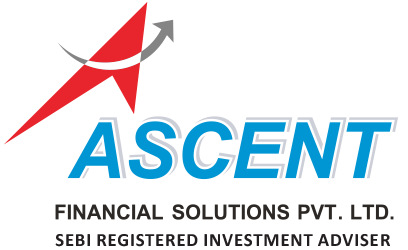 In our earlier article, we had discussed about what Equity is and why share prices move up and down? It is now understood that company offer equity shares to raise funds for the business. But issuing shares leads to dilution of ownership of the company. But in case if the company does not want to raise capital by diluting ownership through shares, the other option is to take loans from public or Bank through different debt instruments. Collecting funds through debentures is one of the commonly used methods to raise funds for companies. Let us first understand what is Debenture?
In our earlier article, we had discussed about what Equity is and why share prices move up and down? It is now understood that company offer equity shares to raise funds for the business. But issuing shares leads to dilution of ownership of the company. But in case if the company does not want to raise capital by diluting ownership through shares, the other option is to take loans from public or Bank through different debt instruments. Collecting funds through debentures is one of the commonly used methods to raise funds for companies. Let us first understand what is Debenture?
What is Debenture?
A debenture is an amount of loan taken by a company from the public. In other words debentures are issued by a company when it intends to raise a loan amount from the public. These debentures are listed on the stock exchange and therefore provide liquidity to the holders.
Types of Debentures:
Debenture can either be convertible or non-convertible.
- Convertible debentures: – These are those debentures which can be converted into equity shares after a specified period. Till the time of conversion, these debentures earn regular income in the form of interest but once they are converted to equity shares, they are just like normal shares.
- Non-convertible debentures: – These are those debentures that cannot be converted into equity shares. Debentures issued by companies are like fixed deposits, where you are lending a certain amount to a company in order to get some interest income and your money after few years.
Types of NCDs:
A Non Convertible Debenture can either be secured or unsecured, let us understand what does that mean.
- Secured Non convertible Debentures (NCD): These debentures are secured and backed up by some assets of the company. These assets can be liquidated to pay off the debenture holders incase if something goes wrong. The returns on these debentures are lesser compared to unsecured debentures.
- Unsecured Non convertible Debentures (NCD): These debentures are the ones which are not secured by any assets and in case if anything goes wrong in the company, there is a possibility that these debentures are not paid back. Only if the company has funds available after paying off everyone who has some security, the unsecured debenture holder will be paid back. Therefore the interest rates are higher for these debentures.
Interest Rates in NCDs:
The interest rate offered by NCD depends upon the market scenario and liquidity condition in the economy. Normally NCD’s offer 2 to 3 % higher interest rate than fixed interest bearing instruments like fixed deposit. There can be various options for interest payout such as monthly, quarterly, half yearly or annually. However, most NCDs offer annual and cumulative payout. Investors wish to earn higher returns opt for cumulative option where the interest is reinvested and paid at maturity. The tenure on NCDs can be between 2 years to 20 years.
Taxation:
There are two types of income in NCDs – Interest Income and Capital Gains. Taxation for both is explained as under:
Taxation on Interest income:
Tax treatment is exactly similar to any other interest income such as interest income from FDs. In other words, interest income from NCDs will be subjected to tax at normal rates by including it in ‘Income from other sources’.
Capital Gains: The principal amount received on maturity is not taxed at all. But if you decide to sell NCDs on stock exchange where it is traded, then capital gains arises. The tax treatment of short term and long term Capital Gains from NCDs is explained in the table below
Conclusion:
Normally NCDs provides higher returns than fixed deposits, therefore investors who are looking for a stable return with minimum risk can invest in NCDs. But there are certain risks associated with NCDs which investors have to take into consideration before investing in it. The biggest risk involved is the credit risk. Therefore, you need to check the rating of the NCDs before investing. These are normally rated by credit rating agencies like CRISIL and CARE based on various parameters. A rating of AAA by CRISIL is considered to be highest on safety. A good rating indicates reasonable assurance of safety and return of principal as well as interest.

